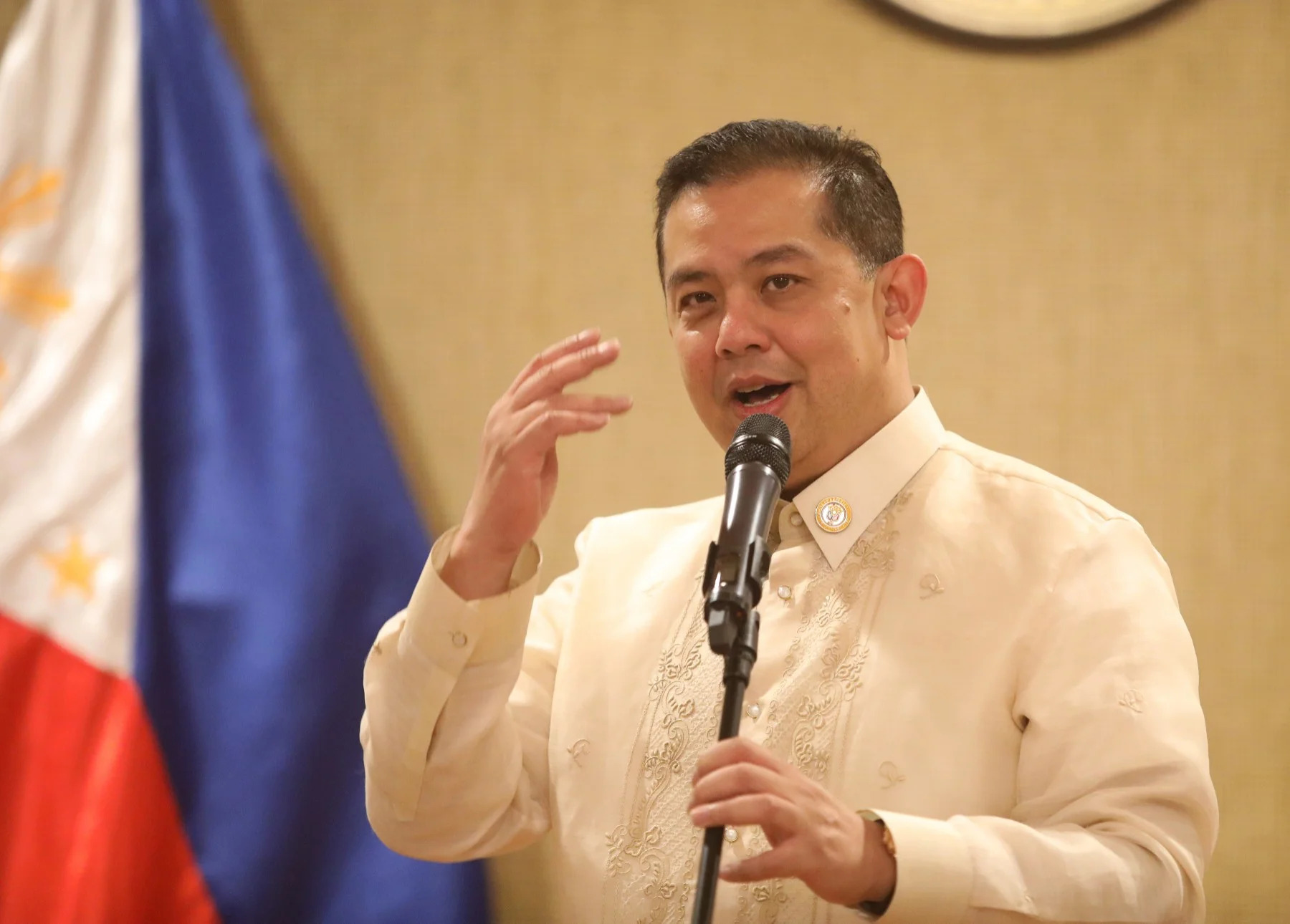
House Speaker Martin Romualdez | FILE PHOTO: Official website of the House of Representatives / congress.gov.ph
MANILA, Philippines — The newly-enacted Magna Carta of Filipino Seafarers ensures that sailors get job opportunities abroad and at the same time, that they are taken care of, House of Representatives Speaker Ferdinand Martin Romualdez said on Monday.
In a statement after President Ferdinand “Bongbong” Marcos Jr. signed Republic Act No. 12021 into law, Romualdez said greater protection for Filipino seafarers means more support for families of these workers.
“This historic piece of legislation will ensure the protection and continuous employment of our Filipino sailors, most of whom are employed by foreign shipping companies. They will be able to continue to support their families back home,” he said.
“With this measure, we hope we can remain to be the largest supplier of seafarers in the world,” he said.
READ: Marcos signs Magna Carta of Filipino Seafarers into law
Marcos signed into law the Magna Carta of Seafarers, months after a series of discussions delayed its enactment.
The law contains provisions on seafarers’ rights and duties, protection of women in the maritime industry, emergency rescue of domestic seafarers, manning levels and crew competency requirements, terms and conditions of employment; accommodation and food; Medical care, inspection and enforcement; and dispute resolution.
Last February 26, Marcos was set to sign the ratified version of the bill, but it was postponed after the Presidential Communication Office (PCO) said the proposal was still under review.
On the same day, the House adopted House Concurrent Resolution No. 23 which recalled from the Office of the President the enrolled copies of Senate Bill No. 2221 and House Bill No. 7325, which contained the Magna Carta of Filipino Seafarers bill.
During the discussions for House Concurrent Resolution No. 23, it was confirmed that the bill was withdrawn due to jurisdiction issues regarding disputes. Under the previous bill, the jurisdiction of disputes was transferred from the Department of Labor and Employment (DOLE) to the International Labour Organization (ILO).
Bohol 3rd District Rep. Kristine Tutor meanwhile said that the bill was withdrawn due to the “resistance of some stakeholders to change”.
This is not the first time that the bill encountered controversies. While the proposal is a welcome development for different sectors, lawmakers like Gabriela party-list Rep. Arlene Brosas warned about the escrow provisions — which provided that monetary awards given through an arbiter, like the National Labor Relations Commission, to a seafarer disabled in the line of work would be held in escrow if the employer disputes it.
Romualdez assured that this version of the law is better suited to protecting seafarers, especially Filipino women.
“The Magna Carta of Filipino Seafarers also protects women sailors against discrimination,” Romualdez said.
“Their remittances contribute significantly to keeping the economy on the high-growth path,” he added. “Our seafarers are among our modern-day heroes.”
House Deputy Majority Leader and Tingog Partylist Rep. Jude Acide, who chairs the House committee on overseas workers affairs, believes the law also addresses concerns of foreign employers on the education and training of Filipino seafarers.
“We hope our sailors will not face the same threats of being blacklisted made in the past by some shipping companies in Europe due to these concerns,” he said.
“Our law conforms with international legislation and standards, which means that foreign companies will most likely continue employing our sailors,” he added.